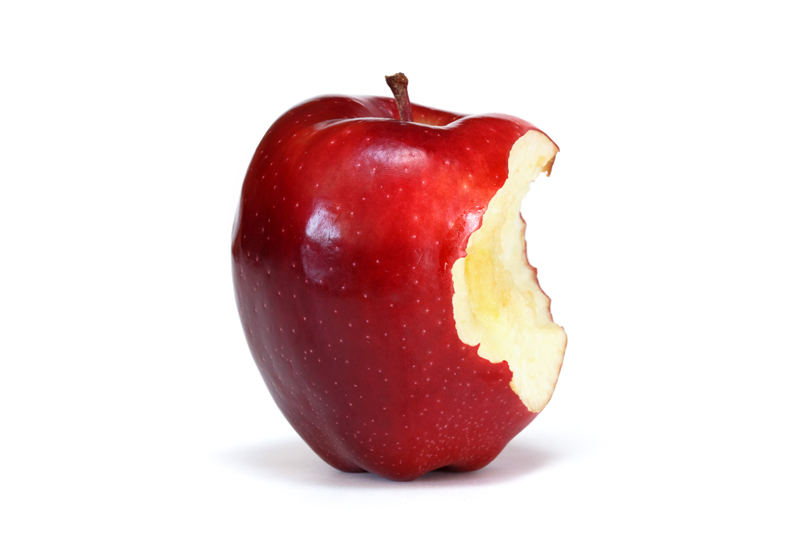Kidney Stones

Your diet is the strongest factor in determining whether you suffer from kidney stones. If you have been through a bout with kidney stones in the past or think that you might be a candidate for developing a stone. There are preventive measures you can take.
Kidney stones tend to run in families, so individuals with a close relative who has kidney stones should be mindful of the higher risk factor for them to develop kidney stones. Most first-time victims tend to be between 30 and 40 years old and are other wise in good health. Men are four times more likely than women to get kidney stones the theory being that female hormones may prevent kidney stones from forming. Most kidney stones are formed by calcium oxalate or calcium phosphate. The primary symptom of kidney stones is excruciating pain in the lower back or abdomen.
Preventive measures you can take
Increasing fluid intake should be the first step and may be the only step needed. Water is essential to good health; it is involved in making every body system work. Without enough water, your urinary tract is especially open to problems. A kidney stone can be one of them. Drinking water helps flush out harmful substance before they can bind together and form kidney stones.
Vitamin A-is necessary for the overall health of your urinary track. Foods rich in vitamin A include sweet potatoes, winter squash, broccoli, and carrots.
Vitamin B-scientists have found that vitamin B may actually lower the amount of oxalate in the blood and reducing the risk of stone formation. Magnesium, too, has a negative effect on stone formation.
Regular exercise-one of the many benefits of exercise is that it facilitates the passage of calcium out of the bloodstreams and into the bones resulting in stronger bones and less risk of stone formation.
Fiber-researchers are not sure exactly how it works, but studies have shown that kidney stones suffers who eat 10 to 15 grams of bran fiber per day have fewer stones.
Potassium-if you are deficient in potassium your risk of forming kidney stones may be higher. To supplement your potassium naturally, eat oranges, bananas, cantaloupes and avocados. Also eat dried apricots, figs and peaches they are all high in potassium.
Salt intake-salt makes your body excrete calcium before it can do you any good. Studies found a clear relationship between salt and kidney stones in those who are kidney stone former. To reduce the salt in your diet, you can do more than just avoid that saltshaker. Eat fewer fast foods and processed foods and more fresh fruits and vegetables.
A quarter pounder cheeseburger contains around 1225 mg of sodium. A slice of bread, 200 mg, a bagel 245 mg of sodium and a small can of tomato juice has 660 mg of sodium. However, a fresh tomato has only 19 mg of sodium, and other vegetables and fruits are also naturally low in salt. By eating more fresh healthy foods, you can keep down the salt in your diet, hold on to your calcium and keep your kidneys healthier.
There are also herbal remedies; herbs used to help pass kidney stones include bearberry, stone root, cleaver, kava kava, and cram bark. Some have also found that homeopathy and hydrotherapy to help.
Vitamin C-more than 3,000 mg daily can be a potential problem for those prone to kidney stones. Vitamin C is converted to oxalate in the body. Those prone to kidney stones should stay away from vitamin C supplements, although foods containing vitamin C are not a problem. Steer clear of foods that contain stone forming oxalate, beans, beets, peanuts, and spinach. Also, Steer clear of apple juice and grapefruit juice they seem to increase the risk of kidney stones.
This information is for informational purpose only and is not intended to replace the care or advice of a physician.
Kidney stones tend to run in families, so individuals with a close relative who has kidney stones should be mindful of the higher risk factor for them to develop kidney stones. Most first-time victims tend to be between 30 and 40 years old and are other wise in good health. Men are four times more likely than women to get kidney stones the theory being that female hormones may prevent kidney stones from forming. Most kidney stones are formed by calcium oxalate or calcium phosphate. The primary symptom of kidney stones is excruciating pain in the lower back or abdomen.
Preventive measures you can take
Increasing fluid intake should be the first step and may be the only step needed. Water is essential to good health; it is involved in making every body system work. Without enough water, your urinary tract is especially open to problems. A kidney stone can be one of them. Drinking water helps flush out harmful substance before they can bind together and form kidney stones.
Vitamin A-is necessary for the overall health of your urinary track. Foods rich in vitamin A include sweet potatoes, winter squash, broccoli, and carrots.
Vitamin B-scientists have found that vitamin B may actually lower the amount of oxalate in the blood and reducing the risk of stone formation. Magnesium, too, has a negative effect on stone formation.
Regular exercise-one of the many benefits of exercise is that it facilitates the passage of calcium out of the bloodstreams and into the bones resulting in stronger bones and less risk of stone formation.
Fiber-researchers are not sure exactly how it works, but studies have shown that kidney stones suffers who eat 10 to 15 grams of bran fiber per day have fewer stones.
Potassium-if you are deficient in potassium your risk of forming kidney stones may be higher. To supplement your potassium naturally, eat oranges, bananas, cantaloupes and avocados. Also eat dried apricots, figs and peaches they are all high in potassium.
Salt intake-salt makes your body excrete calcium before it can do you any good. Studies found a clear relationship between salt and kidney stones in those who are kidney stone former. To reduce the salt in your diet, you can do more than just avoid that saltshaker. Eat fewer fast foods and processed foods and more fresh fruits and vegetables.
A quarter pounder cheeseburger contains around 1225 mg of sodium. A slice of bread, 200 mg, a bagel 245 mg of sodium and a small can of tomato juice has 660 mg of sodium. However, a fresh tomato has only 19 mg of sodium, and other vegetables and fruits are also naturally low in salt. By eating more fresh healthy foods, you can keep down the salt in your diet, hold on to your calcium and keep your kidneys healthier.
There are also herbal remedies; herbs used to help pass kidney stones include bearberry, stone root, cleaver, kava kava, and cram bark. Some have also found that homeopathy and hydrotherapy to help.
Vitamin C-more than 3,000 mg daily can be a potential problem for those prone to kidney stones. Vitamin C is converted to oxalate in the body. Those prone to kidney stones should stay away from vitamin C supplements, although foods containing vitamin C are not a problem. Steer clear of foods that contain stone forming oxalate, beans, beets, peanuts, and spinach. Also, Steer clear of apple juice and grapefruit juice they seem to increase the risk of kidney stones.
This information is for informational purpose only and is not intended to replace the care or advice of a physician.
You Should Also Read:
Kidney Stones
Medicinal Benefits of Whole Foods
Ayurvedic Tips-Kidney Stones

Editor's Picks Articles
Top Ten Articles
Previous Features
Site Map
Content copyright © 2023 by Victoria Abreo. All rights reserved.
This content was written by Victoria Abreo. If you wish to use this content in any manner, you need written permission. Contact Victoria Abreo for details.



